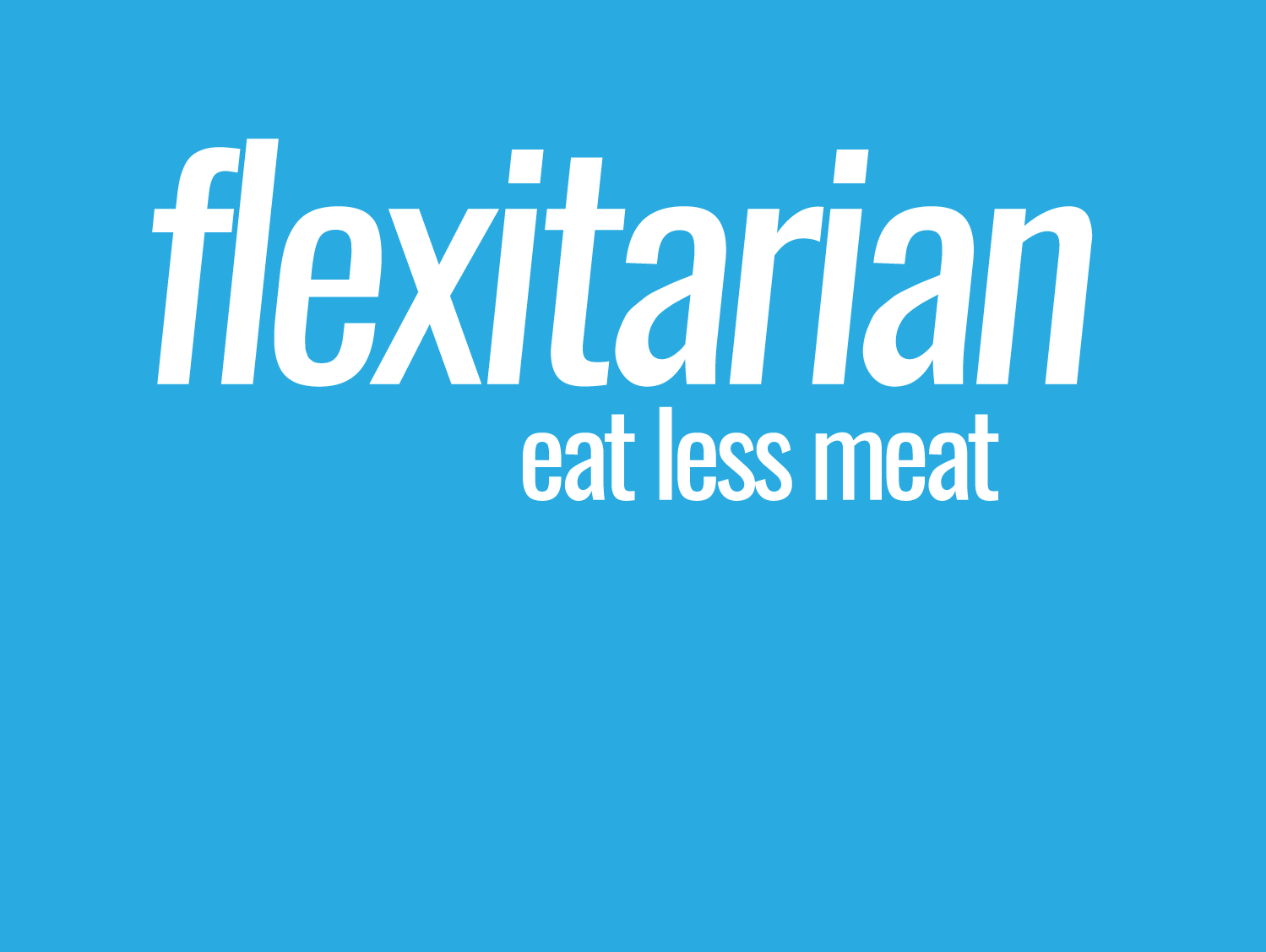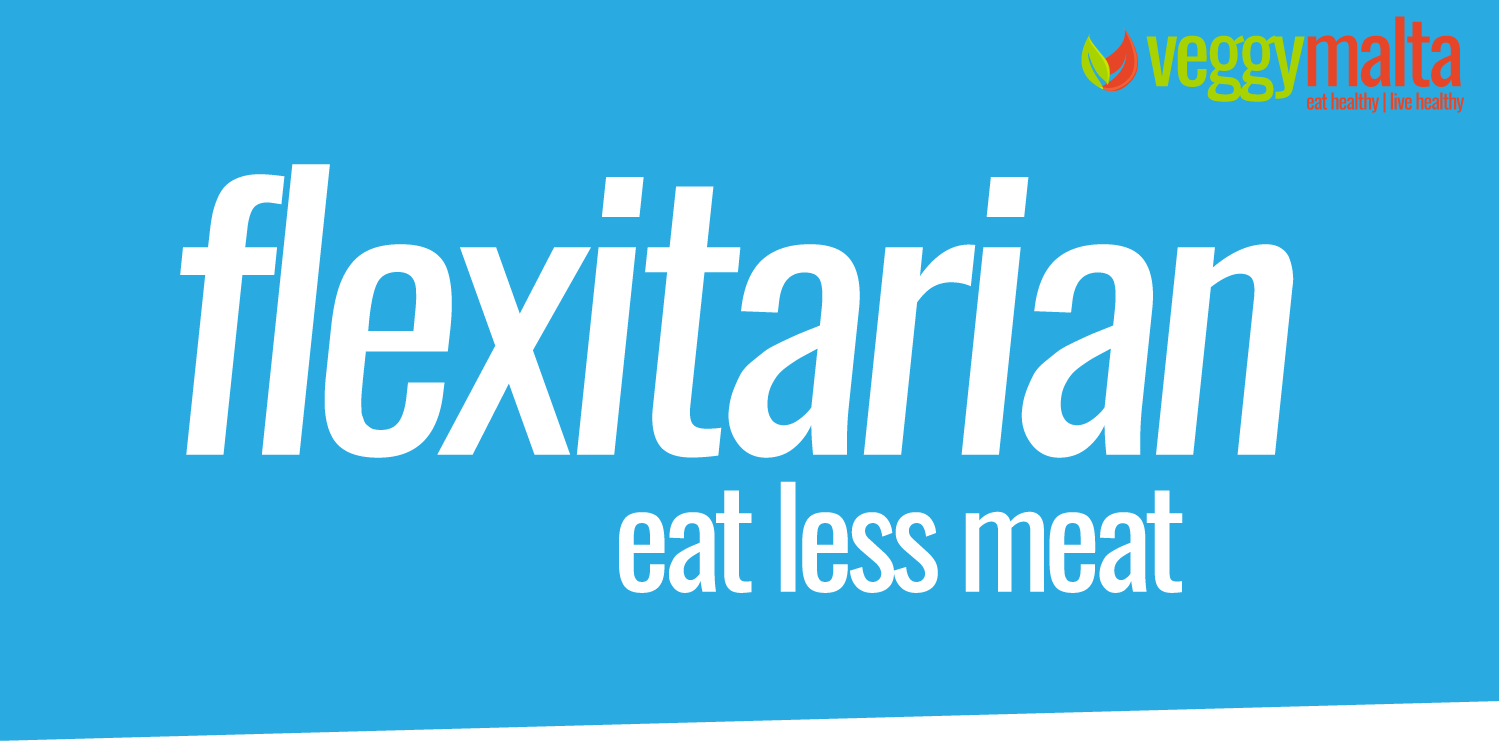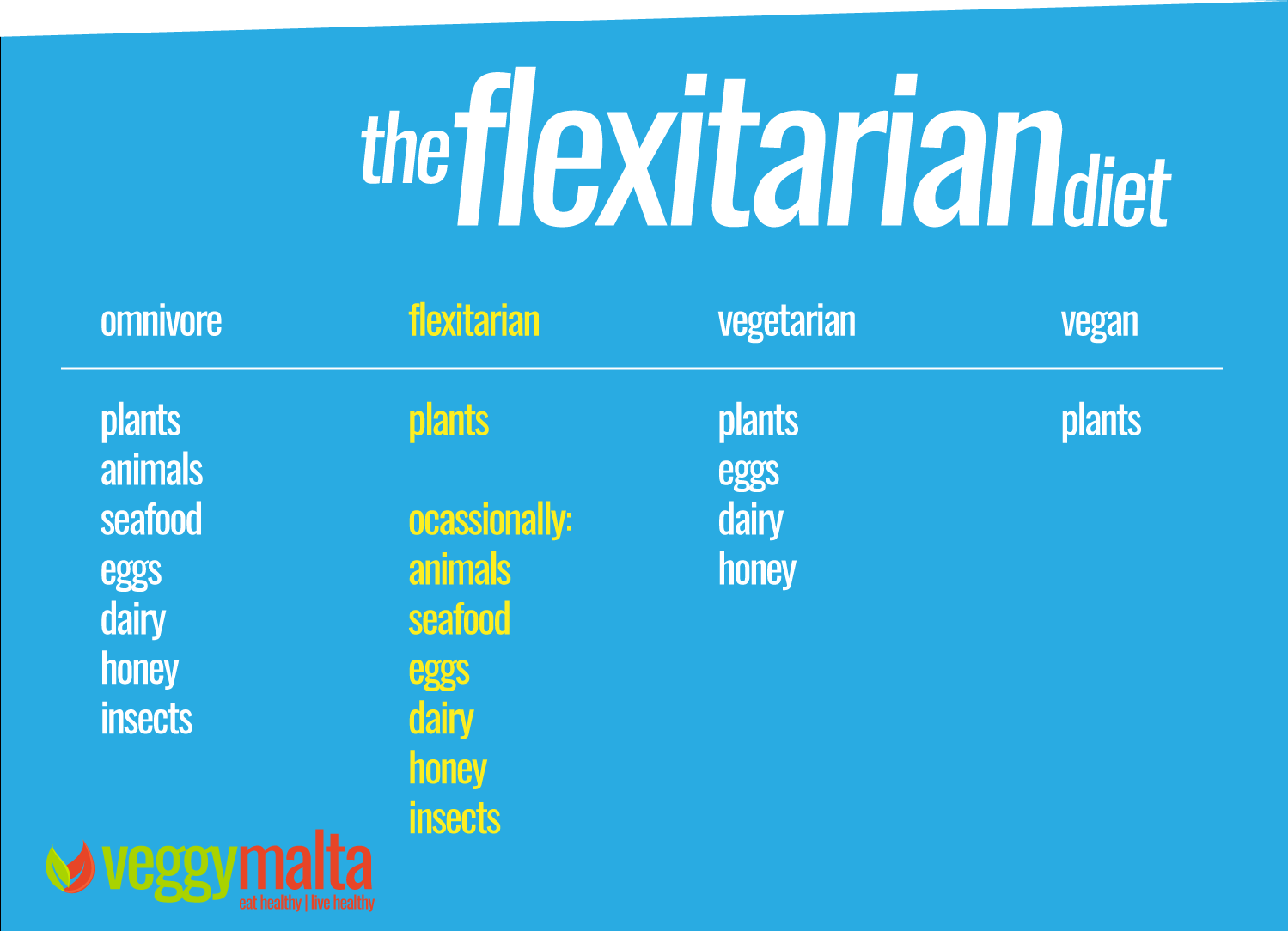Veggy Malta looks at this relatively new word and tries to explain how easy it is to go flexitarian in today’s busy world. Merriam-Webster dictionary included the work in 2012, with the meaning “one whose normally meatless diet occasionally includes meat or fish”.[1]
So what is a flexitarian diet? As the name well suggest it is a flexible diet. Whilst some vegetarians and vegans label flexitarians as lazy and non-committed, I would state that there is a lot of ground for promoting this lifestyle. BBC Good Food describes Flexitarianism or ‘casual vegetarianism’ as an increasingly popular, plant-based diet that claims to reduce your carbon footprint and improve your health with an eating regime that’s mostly vegetarian yet still allows for the occasional meat dish.[2]
Based on this I am strongly inclined to promote a flexitarian approach. With this approach individuals can switch to a healthier diet. Avoid as much as possible processed and red meat, which according to research from the World Health Organisation may increase the risk of colorectal cancer.[3] In fact this movement is one that tries to stay away from a meat-heavy diet. Yet still gives you the flexibility to occasionally have some meat or fish.
The process does not need to be dramatic. Dawn Jackson Blatner, author of the book The Flexitarian Diet, suggests that there are three levels of flexitarians; beginner, advanced and expert. A beginner can start with two meatless days per week, decreasing meat gradually until reaching expert level with five meatless days per week. This makes the change easy and at the same time gives the flexitarian the benefit of having a fall-back.
So what does being a flexitarian really mean?
There is not hard rule just as you find for vegetarians and vegans. It is clearly your personal choice. You can:
- Don’t eat meat before 6.00pm
- Eat meat only in the weekends
- Use meat only as a flavour (not the base of a meal)
- Eat only two/three dishes of meat a week
It really is up to you. Yet by going flexitarian you are choosing to increase you plant-based foods which can be extremely beneficial to your health. These would include lentils, peas, beans, nuts and seeds, all of which are good sources of protein. You should feel better. In fact those that switch from a meat based diet to a vegetarian diet can add up to 13 healthy years to their life.[4] As a flexitarian you can start reaping some of these benefits as well.
Ideally you can combine your choice of going flexitarian with an exercise regime. This will twin the effect of reducing meat and at the same time eating more greens with a more active lifestyle. Whilst not everybody is ready to become a vegetarian or vegan, the flexitarian community is growing substantially just as more an more vegetarian and vegan choice in supermarkets, health shops, and restaurants.
If health reasons are not your trigger than maybe environmental reasons are. Did you know that the production of 1 kilo of beef requires the same energy as a 100-watt light bulb for 20 days. In fact UN agency FAO estimates that close to 20% of the greenhouse gas emissions are due to livestock production.[5] So you can also be doing you part in decreasing climate change by going flexitarian.
Making the switch has never been easier. There are ample plant based and meat free choice. Veggy Malta is constantly promoting meat free products that are available, recipes and also places you can go. Start today!





2 comments
I don’t believe that I could stop eating meat completely yet I would consider and am trying to decrease it. Keep up the article and recipes and thanks.
I think this is the right approach. Each person needs to find their own balance and path, some might choose to remove meat consumption completely and others to decrease it. the flexitarian approach seems rational. well stated.